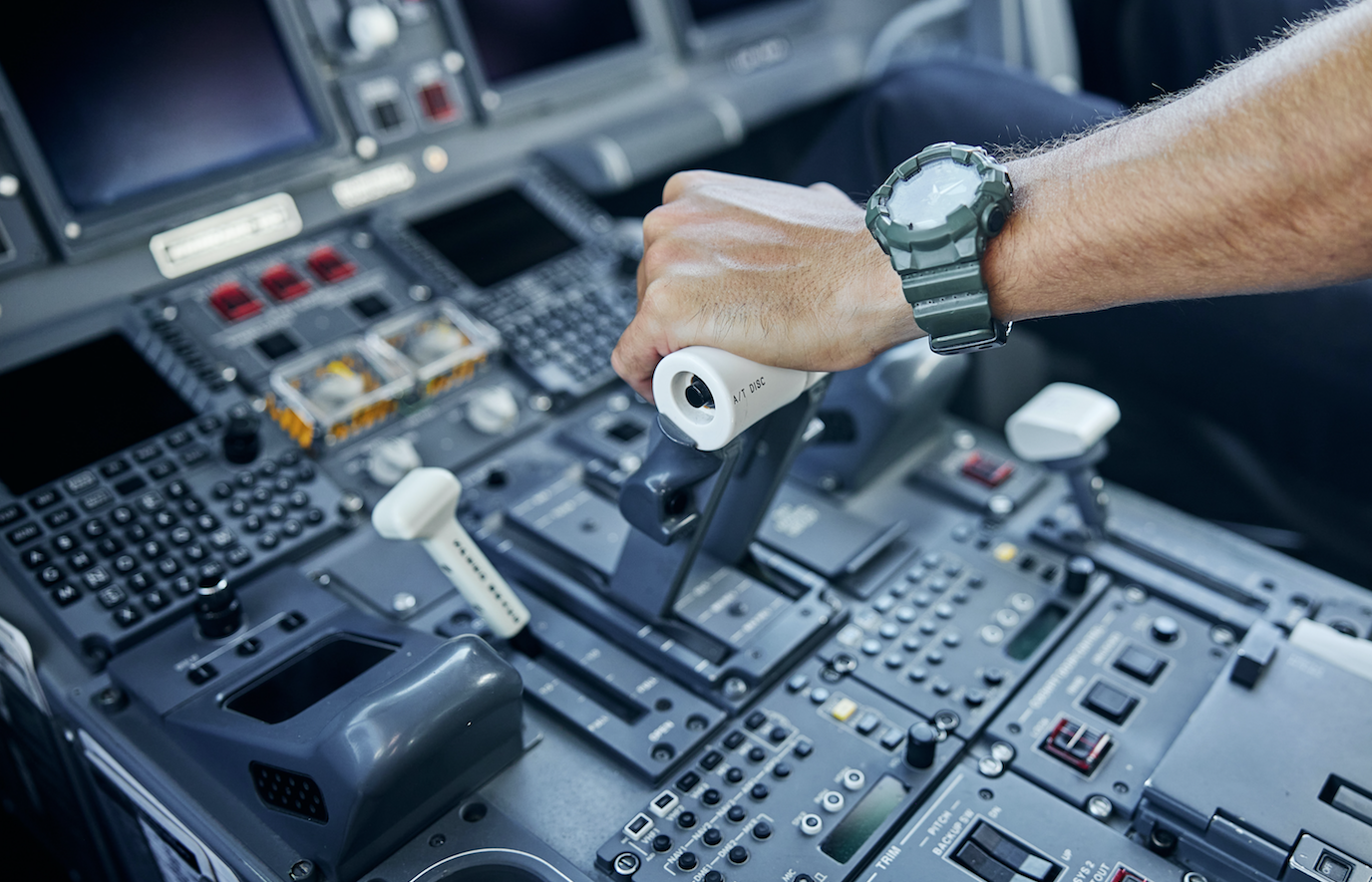Psyching Out

November 21, 2023
I SHOULD PROBABLY say something about the off-duty Alaska Airlines pilot who made headlines after attempting to shut down the engines of a Horizon Air regional jet en route to San Francisco. Joseph Emerson, 44, who was riding in the cockpit jumpseat, faces multiple counts of attempted murder.
Emerson says he believed he was in a dream-state at the time after dosing on psychedelic mushrooms two days earlier. He’d been traumatized by the death of a close friend, and, it has been reported, had been battling depression for years.
Where the drug use and mental health problems intersect is problematic. It’s tempting to see this as a clear-cut case of dangerously reckless behavior, backstory be damned. A heavy-enough intake of magic mushrooms can cause anybody, regardless of their normal mental state, to lose track of reality. So-called microdosing has become common as a do-it-yourself depression treatment; perhaps Emerson upped a dose without realizing how intense the effects can be. And as medical professionals will attest, depression by itself does not typically inspire sufferers to commit acts of violence. It took the mushrooms to push Captain Emerson over the edge.
(Twice in the last week I’ve been treated to snarky, “Hey man, I hope you aren’t trippin’!” comments from passengers. I know that flying brings out the worst and rudest in people, but try to restrain yourself.)
However you look at it, the incident has touched off a difficult conversation about how pilots do, or don’t, deal with ailments like depression and anxiety, the diagnosis of which can cost a pilot his or her livelihood. And we’re reminded, sadly, of Germanwings first officer Andreas Lubitz, who in 2015 locked the captain out of the cockpit and flew his Airbus A320 into the Alps, killing everybody on board. Not to mention first officer Gameel Al-Batouti, who in 1999 flew EgyptAir flight 990 into the Atlantic Ocean, murdering 217 people.
The New York Times ran an excellent story on the subject, here. There isn’t a whole lot I can add, other than to cut and paste from an earlier post…
First, be wary of extrapolation. The total number of pilot suicide crashes over the decades is a tiny one. These incidents are what they are: outliers. You can argue that the certification process for pilots needs fixing, but that’s not reason enough to suggest there’s a crisis at hand, with hundreds of looming Emerson’s or Lubitzes or Al-Batoutis waiting to snap, with nothing to prevent them from doing so.
And in only the rarest cases does mental illness turn people violent. The idea that a depressed individual is likely to be a dangerous individual is an ignorant and unfair presumption about the nature of mental illness. As one Ask the Pilot reader put it after the Germanwings catastrophe, “Andreas Lubitz didn’t kill those people because he was depressed; he killed them because he was evil.” You can say the same for Al-Batouti. In all but the rarest cases, a pilot with a mental health issue is not an unsafe pilot, never mind a suicidal killer.
Pilots are human beings, and no profession is bulletproof against every human weakness. Whether the result of stress or something more systemic, pilots sometimes need help — just as professionals in any industry do, including those entrusted with the lives of others. Unfortunately for us, the association carries a heavy stigma, and anything involving commercial aviation is subject to media amplification and hysteria.
The FAA now permits pilots to take certain anti-depressant medications. Although the process can be onerous, the agency says it will convene a committee to explore and update mental health protocols, aiming to speed up the approval process for those under treatment.
Airlines, meanwhile, have become more supportive and proactive than you might expect, while ALPA and other pilot unions have medical and mental health staff that pilots can contact any time. A proactive, employee-friendly approach keeps the problem from being driven underground; if a pilot has an issue, he or she can pick up the phone, usually with little worry of long-term career implications.
In the U.S., airline pilots undergo medical evaluations either yearly or twice-yearly, depending. A medical certificate must be issued by an FAA-certified physician. The checkup is not a psychological checkup per se, but the doctor evaluates a pilot on numerous criteria, up to and including his or her mental health. In addition, new-hire pilots at some airlines undergo psychological examinations prior to being hired. On top of that we all are subject to random testing for narcotics and alcohol.
We can further debate the merits of additional psychological testing, but at a certain point I’m not sure what more we should want or expect.
In the end, we’re forced to rely on a set of presumptions — it comes down to trust, if you will. As a pilot I do not come to work wondering if one of my colleagues is going to kill me. Passengers shouldn’t either. On the contrary. I don’t want this to sound like an airline commercial or an FAA press release, but you can confidently presume that the people flying your plane are exactly what you expect them to be: well-trained professionals for whom safety is their foremost priority.
Related Story:
Photo courtesy of Unsplash.



